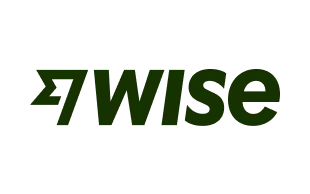Promoted for
Small transfers

Looking for a way to send money to family, friends or a business in Brazil (or even to your own bank account overseas)? According to MoneySmart, you should avoid Australian banks and go with a money transfer specialist to get better BRL exchange rates and lower fees on international transfers.
Based on the providers we've compared, Remitly is among the cheapest, with competitive exchange rates and fees starting from $0. Need a really fast transfer? OrbitRemit can get money to your recipient in Brazil within minutes.
We currently don't have that product, but here are others to consider:
How we picked theseWe review money transfer providers for different features to assign them a score out of 10. The higher the score, the more competitive the product.
As reported by the ACCC, bank transfers are typically the cheapest way to get your money to Brazil. Remitly and Send Payments have some of the lowest bank transfer fees of the brands we've compared.
Remember, it's more important to look at the overall cost of your transfer to Brazil and this has a couple of elements:Certain providers may give the mid-market rate but add fees on top and others will have low fees but apply a markup on the exchange rate. This means it is important to compare exactly how many Brazilian reals your recipient will end up with.
Actual transfer times from Australia to Brazil can depend on several factors including transfer amount, payment method and currency.
Here are some of the fastest average transfer speeds to Brazil:The safest way to get your money to Brazil is using a provider registered with Australia's industry regulator, the Australian Transaction Reports and Analysis Centre (AUSTRAC). All of the companies we've compared in our table are overseen by a local regulator and comply with the relevant laws and regulations in both Australia and Brazil.
A great way to dive deeper is by reading our reviews of each transfer service and researching first-hand customer feedback on Trustpilot and similar platforms.
If you need to make a sizable money transfer to Brazil, consider using a provider such as OFX or Send Payments to secure a better BRL exchange rate and benefit from its expertise handling larger transactions.
Using a large transfer specialist can have the following advantages:To send money to Brazil, you'll need the necessary documentation, your recipient's details and a way to pay.
Gabriel is working in Australia as a doctor and he stays in regular contact with his elderly parents back home in Brazil. His parents need some funds to help pay off a mortgage, so Gabriel plans to send them $2,000 from Australia.
He decides to compare a bank and a money transfer specialist to see which one can save the most money on his transaction.
| Bank | Money transfer company | |
|---|---|---|
| Exchange rate | 1 AUD = 3.81 BRL | 1 AUD = 3.86 BRL |
| Transfer fee | $10 | $2.50 |
| Transfer method | Bank account deposit | Bank account deposit |
| Processing time | 2 - 5 working days | Next day |
| Amount received | 7,573.82 BRL | 7,703.00 BRL |
The money transfer company enables Gabriel to send an extra R$129.19, which is transferred straight to his parents' Banco do Brasil account.
When selecting a provider to transfer money to Brazil, here are the main factors to consider:
Compared to a month ago, the Australian dollar is stronger against the Brazilian real. Currently, $5,000 is worth R$19,378.50, whereas a month ago, $5,000 was equivalent to R$18,135.00. That's an increase of 6.86% over the past month.
Similarly, compared to a year ago, the Australian dollar is again stronger against the Brazilian real. A year ago, $5,000 was equivalent to R$18,225.00. That's an increase of 6.33% over 12 months.
So based on those two data points, yes, it's a relatively good time to send money to Brazil, and your Australian dollars will go further than they would have. But what's more important, however, is the strength of the Australian dollar against the Brazilian real and where it goes from here – which is harder to call.
Need to transfer AUD to USA? Learn how to pick the right service to send your money to USA.
Sending money to Seychelles from Australia? Compare international money transfer services and save on exchange rates and fees.
Transferring CZE is easy with our comprehensive guide to the best ways to send money from Australia to Czech Republic.
Transferring NCL is easy with our comprehensive guide to the best ways to send money from Australia to New Caledonia.
Looking for the best way to send money from Australia to Montenegro? Services, rates, and fees compared.
Transferring NGA is easy with our comprehensive guide to the best ways to send money from Australia to Nigeria.
Need to transfer AUD to FRA? Learn how to pick the right service to send your money to France.
Sending money to United Arab Emirates (UAE) from Australia? Compare international money transfer services and save on exchange rates and fees.
Want to send AUD to Italy? We will help you pick the best international money transfer service and explain fees and exchange rates.
Sending money to United Kingdom (UK) from Australia? Compare international money transfer services and save on exchange rates and fees.